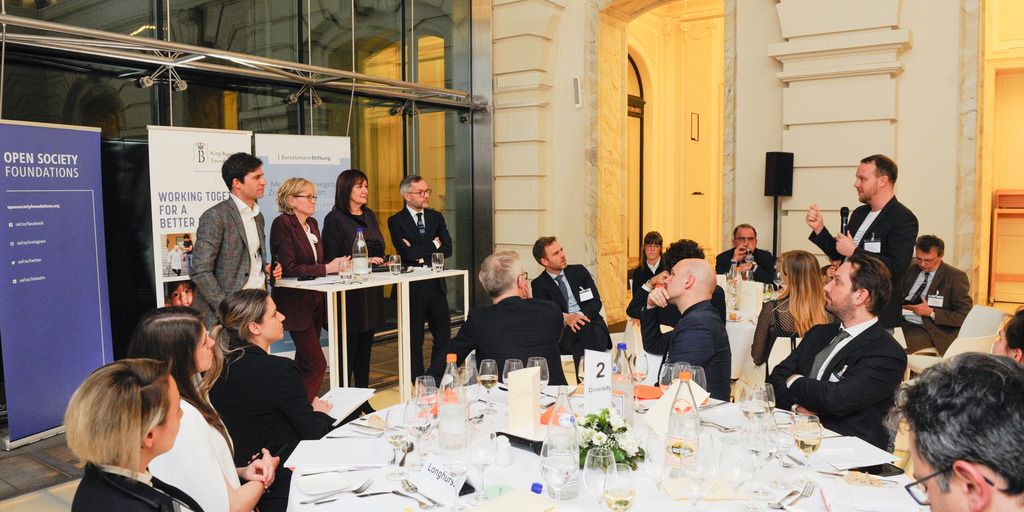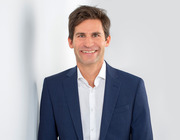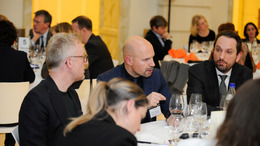Although the concept for the Future Conference has not yet been finalized, and clarification as to exactly how European citizens will be involved is still outstanding, planning is already in full swing. The European Parliament, the Commission and the EU Member States have already put forward their initial proposals. At our Dinner Dialogue on the Conference on the Future of Europe – How to get citizens’ participation right, experts from various EU Member States and EU institutions met to pool their thoughts on challenges and the required conditions for the success of this new EU initiative.
The round of talks opened with results from the Democracy and Participation in Europe project. According to Dominik Hierlemann and Anna Renkamp, five decisive principles of good citizens’ participation are the key to the success of the EU Future Conference: 1. Making an impact with participation, 2. Selecting topics with relevance for citizens and policymakers, 3. Representation of social diversity by the use of random selection of participating citizens, 4. Developing substantial citizens’ proposals through use of good deliberative processes, 5. Achieving acceptance by the general public by the use of visible, transparent and trustworthy processes.
The plenary discussion was opened with introductory remarks from high-level representatives from the three main EU institutions that are involved in designing and organising the Conference. The discussion covered many different aspects of the design and organisation of the Conference, especially the citizen participation dimension.






